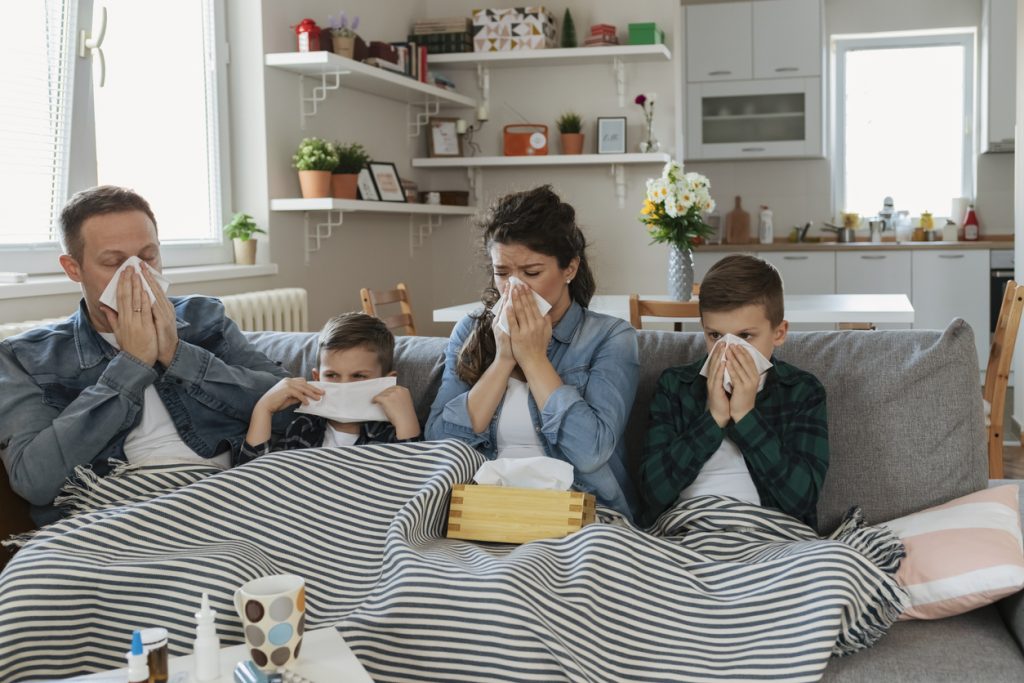What you need to know about RSV
There’s been a lot of news reports lately on the rising case numbers of respiratory syncytial virus (RSV) in Australia. Here is what you need to know about RSV and how to treat it.
There has been a huge increase in cases of RSV in Australia — why?
In 2023, most states and territories in Australia have recorded much higher case numbers of RSV compared to 2022 data. For example, from January to July this year, South Australia has had almost 4000 reported cases. In 2022, there were only 539 reported cases of RSV.
So, what’s happening? It’s likely that several factors are driving the increase in case numbers:
- RSV is very contagious. It’s very easy to spread, especially at close quarters.
- COVID-19 restrictions eased: Lower numbers during 2022 are likely because some COVID-19 pandemic restrictions were still in place. These restrictions are less widespread in 2023.
- RSV only became a reportable disease very recently. Doctors have only had to report it to surveillance authorities since 2021 (and late 2022 in NSW). We don’t have reliable data before 2021 to really figure out what’s “normal” for a RSV season in Australia.
- More doctors and consumers are now testing for RSV. Many doctors are now ordering a combined PCR test for COVID-19/flu/RSV when they see a patient with respiratory illness symptoms. And there are RATs (rapid antigen tests) now available for RSV, so the general public can work out what’s causing their cold and flu symptoms.

What is RSV?
RSV is a virus that infects the respiratory system — that is, your lungs, nose and throat. The symptoms of RSV are very similar to the common cold:
- Runny nose
- Cough
- Sneezing
- Fever
- Ear infection
Babies and young children may also be more irritable and have trouble with breast or bottle feeds.
RSV is most common in infants and small children. For this group — and vulnerable groups including the elderly and immunocompromised — the main concern is the possibility of developing more serious conditions like bronchiolitis or pneumonia.
How do you get RSV?
RSV is highly contagious. It’s spread through the droplets that contain the virus that get released when you sneeze or cough. The droplets can spread directly from person to person.
Virus-containing droplets can also land on surfaces and survive for 4 to 7 hours. So you can also pick up RSV touching surfaces that have infected droplets on them.
You can minimise your chance of infection by:
- Washing your hands with soap and water
- Using hand sanitiser
- Wearing a mask in crowded places
- Avoiding sharing eating utensils or cups
- Cleaning any surface or items that may have virus-containing droplets on them
- Washing shared toys with warm water and detergent at the end of the day or after it has been sneezed upon or mouthed. Allow it to fully dry in the sun.

How do you treat RSV?
You can manage a bout of RSV much like you do a common cold. That is by:
- Resting
- Drinking plenty of fluids
- Using over the counter (OTC) medication for managing fever or pain.
- Staying home while you’re sick or keeping sick children out of school or childcare until they feel better
But remember, for some people (particularly infants and people with underlying conditions), there is a risk that the virus develops into a more severe illness.
When should you see a doctor?
Given that RSV infections can occasionally cause more serious health issues, it’s good to know when to seek medical attention.
See a doctor as soon as you can if:
- You have a cough that continues to get worse
- You have trouble breathing — with very rapid or irregular breaths
- Your child is drawing in their chest with each breath
- Your child refuses food or drinks
- Your baby has half (or less) of their normal feeds
- Your child appears very tired or more sleepy than usual
InstantScripts doctors have a wealth of expertise when it comes to respiratory illnesses.
To speak with an InstantScripts Doctor:
Request a ConsultationIf you have run out of your script:
Request a ScriptWritten by Sally Bathgate, a health and medical writer with more than 10 years’ experience writing plain-language materials for patients and their carers. Sally holds a Bachelor of Science (Hons I) in Pharmacology from UNSW.
© InstantScripts
Level 8 / 637 Flinders St.,
Docklands VIC 3008

